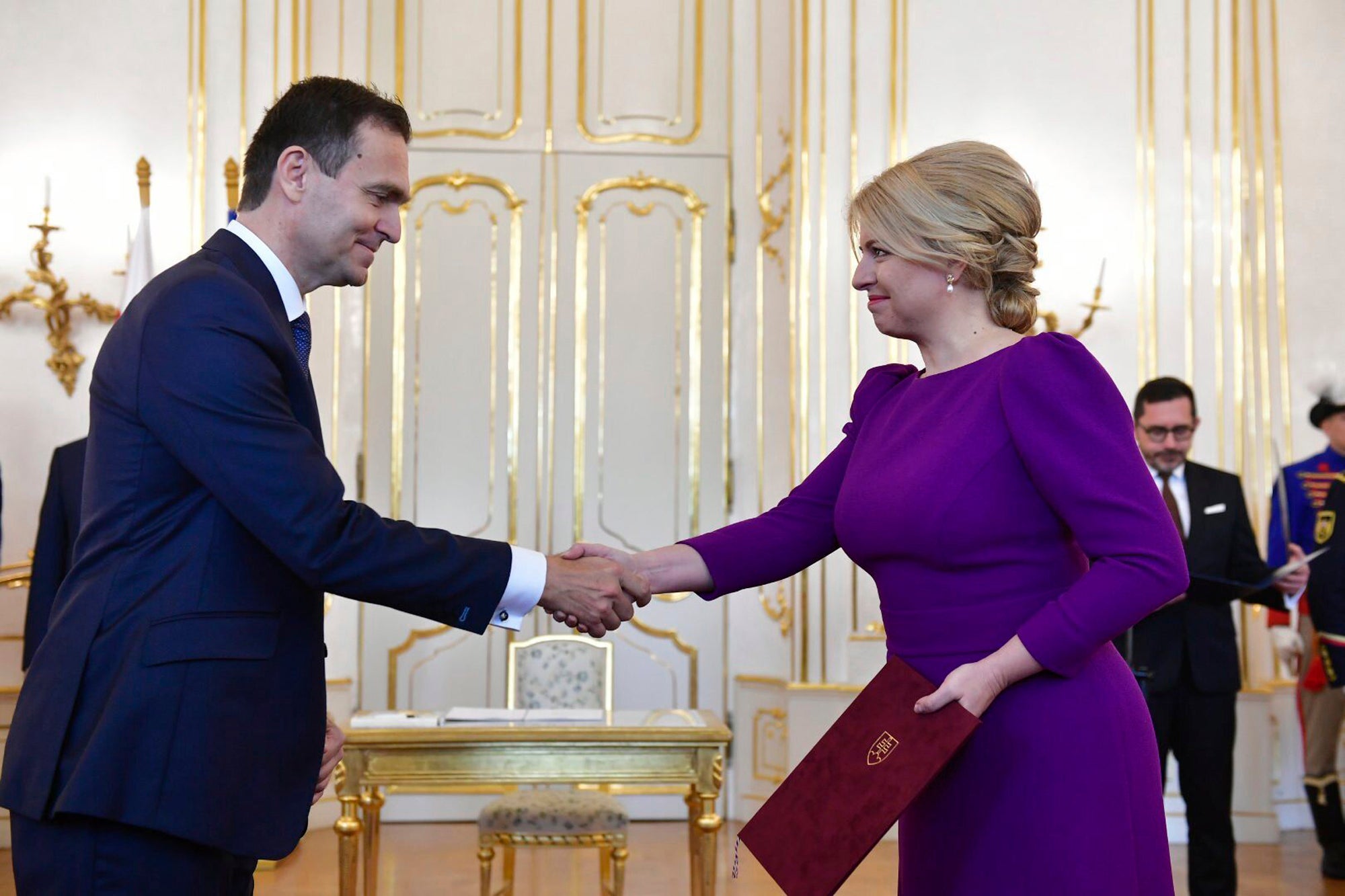Slovakia's technocrat government loses mandatory confidence vote, to stay till September snap vote
Slovakia’s new government of technocrats has lost a mandatory confidence vote in Parliament

Your support helps us to tell the story
From reproductive rights to climate change to Big Tech, The Independent is on the ground when the story is developing. Whether it's investigating the financials of Elon Musk's pro-Trump PAC or producing our latest documentary, 'The A Word', which shines a light on the American women fighting for reproductive rights, we know how important it is to parse out the facts from the messaging.
At such a critical moment in US history, we need reporters on the ground. Your donation allows us to keep sending journalists to speak to both sides of the story.
The Independent is trusted by Americans across the entire political spectrum. And unlike many other quality news outlets, we choose not to lock Americans out of our reporting and analysis with paywalls. We believe quality journalism should be available to everyone, paid for by those who can afford it.
Your support makes all the difference.Slovakia’s new government of technocrats lost a mandatory confidence vote in Parliament on Thursday, just a month after taking office.
President Zuzana Caputova, who swore in the 15-member Cabinet led by Prime Minister Ludovit Odor on May 15, now has to dismiss it.
At the same time, the president will ask the government to stay in office with limited powers till a new government is formed following the Sept. 30 early election, Caputova's office later said. The technocrat Cabinet was created with the aim to lead the country to that election, for which a date was set back in January.
Of the 136 lawmakers who were present in the 150-seat Parliament, the government was defeated in a 34-43 vote.
Slovakia has been without a proper government since last December, when the coalition government led by Prime Minister Eduard Heger was ousted in a no-confidence vote called by the opposition, following months of political crisis.
Caputova initially asked Heger to lead a caretaker government until early elections could take place. However, after four members of the caretaker administration gradually left their posts, Heger offered his resignation and Caputova opted for a government of technocrats.
Under Slovakian law, every government had to face a confidence vote in Parliament within 30 days.
Caputova said that in its limited time, the new government should focus on stabilizing the current situation in the country, preparing next year’s budget, and lead Slovakia to the September election.
Heger’s government was a staunch supporter of Ukraine in its fight against Russian military aggression and gave the Ukrainian armed forces the arms they requested — such as 13 Soviet-era MiG-29 fighter jets and the S-300 air defense system.
Odor’s government has been following suit but some current opposition leaders, including former populist Prime Minister Robert Fico, oppose military support for Ukraine and European Union sanctions against Russia.
Fico and his Smer-Social Democracy leftist party are the favorites to win the upcoming election, according to recent polls.